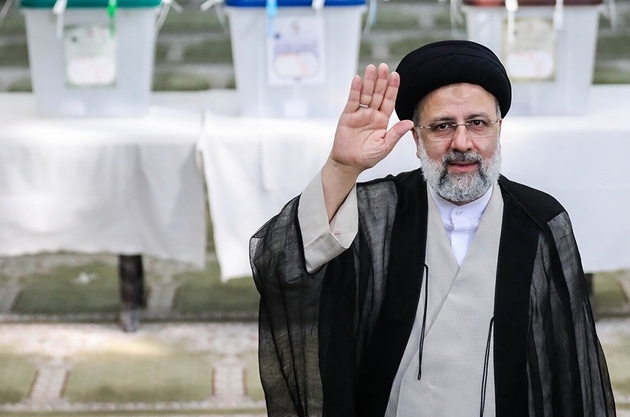Like the rest of Iran’s neighbors, Armenia and Azerbaijan are trying to make sense of how the country’s newly elected conservative president Ebrahim Raisi may change Tehran’s orientation toward the region, Eldar Mamedov, a political adviser to the Progressive Alliance of Socialists & Democrats in the European Parliament, writes in the article for Eurasianet.
Seen from an Azerbaijan perspective, continuity with the policies implemented by the outgoing moderate administration of Hassan Rouhani would be the preferred course. In his congratulatory message to Raisi – who won a stage-managed election on June 19 and is slated to take office in August – Azerbaijani President Ilham Aliyev commended the “strategic cooperation” between the two countries. Significantly, Aliyev emphasized that the full re-establishment of the Iranian-Azerbaijani border as the result of the 2020 war “opens up new opportunities for regional cooperation.”
Some analysts in Baku interpreted this as an invitation to Iran to become a stakeholder in the new post-war order in the South Caucasus. Indeed, despite some specious claims from Azeri ultra-nationalists and American anti-Iran hawks, Tehran has not in any way thwarted Baku’s war effort, and in fact has consistently supported Azerbaijan’s territorial integrity.
Armenia, by contrast, is emerging from an extremely traumatic period – a painful loss in the war against Azerbaijan last year and polarizing national elections in June. It has yet to produce a coherent foreign policy strategy suitable for the new realities. Some Armenian analysts, particularly those sympathetic to the opposition, now hope for some sort of Moscow-Yerevan-Tehran realignment to counter the Baku-Ankara alliance. Re-elected prime minister Nikol Pashinyan, with a renewed and strengthened mandate in the parliament, however, seems more likely to seek a peace deal with Azerbaijan than attempt to balance Azerbaijan and Turkey with Russian and Iranian help.
That may be just fine with Tehran. Raisi’s top priority is to address the country’s desperate economic situation. Since his election is widely seen as a steppingstone to succeed Supreme Leader Ayatollah Ali Khamenei, he needs stability on the country’s borders to focus on its manifold internal challenges. There is a consensus in the Iranian security establishment that the Middle East and Persian Gulf are arenas of vital national security interest, and that the South Caucasus is not. In addition, Afghanistan, during the rapid withdrawal of American forces, is fast emerging as another source of threats for Iran. These regions remain priorities irrespective of who occupies the Iranian presidency.
Iran’s relatively low-key involvement in the South Caucasus could, however, shift if its threat perception regarding Turkey and Azerbaijan grows more acute. Iran sees Turkey’s alliance with Azerbaijan and growing ambition in Central Asia as directed against its interests. However, Raisi’s hardline credentials would at the same time also ensure that whatever conflict might arise will not spiral out of control. He supports the Vienna talks to restore the nuclear deal between Iran and the world powers, but also echoes the conservative establishment’s skepticism of deepening ties with the West, particularly the United States. Iran’s perpetually dysfunctional relationship with the West increases its economic reliance on regional players, including Turkey and Azerbaijan.
In case of Turkey, Tehran has additional incentives for restraint: Its relations with Ankara resemble a complex chessboard, where South Caucasus is but one aspect. The election of the conservative Raisi augurs a more hard-nosed, security-driven approach by Tehran toward the region. At the same time, economic interests, particularly if Iran’s relations with the West continue to stagnate, should mitigate the risks of an all-out confrontation.






